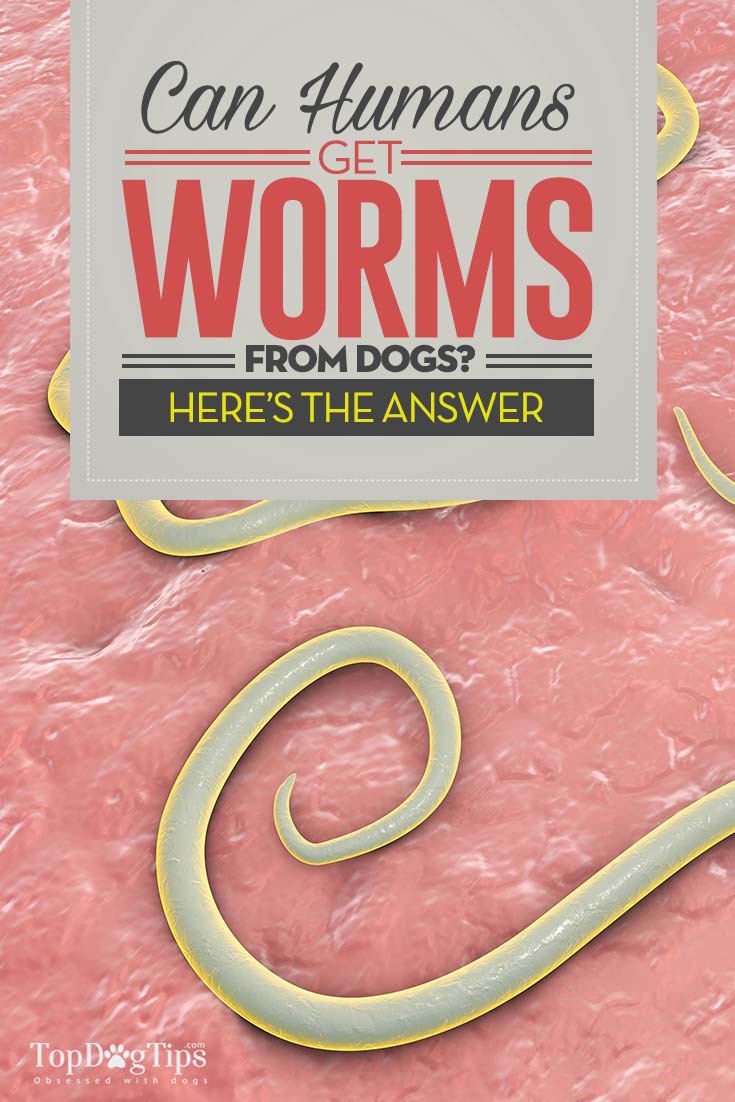As a dog owner, it is important to be aware of the potential health risks that come with feeding your furry friend human food. One of the concerns that many pet owners have is whether or not human food can give dogs worms. This is a valid concern, as worms can cause a range of health issues for dogs, including vomiting, diarrhea, weight loss, and even death in severe cases.
While it is true that some human foods can lead to worms in dogs, the risk is largely dependent on the type of food and the frequency with which it is given. In this article, we will explore the relationship between human food and worms in dogs, as well as provide tips on how to keep your furry friend healthy and worm-free. Whether you are a seasoned dog owner or are considering getting a pet for the first time, this article is a must-read for anyone who wants to ensure their dog’s health and well-being.
Does Human Food Give Dogs Worms?
Yes, feeding your dog human food can give them worms. Many human foods, such as raw meat and fish, can contain parasites that can infect your dog. Additionally, foods that are high in sugar and fat can weaken your dog’s immune system, making them more susceptible to worm infections. It’s important to feed your dog a balanced diet of high-quality dog food to ensure they stay healthy and worm-free.

Does Human Food Give Dogs Worms?
Many dog owners love to share their food with their furry friends. While some human foods are safe for dogs, others can cause serious health problems. One common concern among dog owners is whether feeding human food can give dogs worms.
Understanding Worms in Dogs
Before we dive into the question of whether human food can give dogs worms, it’s essential to understand what worms are and how they affect dogs. Worms are internal parasites that live in a dog’s intestines. They can cause a wide range of health problems, including vomiting, diarrhea, weight loss, and anemia. Common types of worms in dogs include roundworms, tapeworms, hookworms, and whipworms.
Dogs can become infected with worms in several ways. They can ingest worm eggs or larvae from contaminated soil, feces, or water. They can also get worms from eating infected prey, such as rodents or birds. In some cases, dogs can get worms from their mothers during pregnancy or nursing.
Can Human Food Give Dogs Worms?
Feeding your dog human food is not a direct cause of worms in dogs. However, some human foods can increase the risk of your dog getting worms. For example, feeding your dog raw or undercooked meat can expose them to tapeworms. Tapeworms live in the intestines of animals, and dogs can get them by eating infected meat.
Additionally, feeding your dog table scraps or leftovers can lead to an unbalanced diet, which can weaken their immune system and make them more susceptible to worms. Dogs that eat a balanced diet that meets their nutritional needs are less likely to get worms.
The Risks of Worms in Dogs
Worms can cause serious health problems in dogs, and some types of worms can also infect humans. For example, roundworms can be transmitted from dogs to humans and can cause a condition called visceral larva migrans, which can damage internal organs.
In addition to the health risks, treating worms in dogs can be costly and time-consuming. Depending on the type of worms, treatment may involve medication, dietary changes, and other interventions. Prevention is the best approach to dealing with worms in dogs.
Tips for Preventing Worms in Dogs
Preventing worms in dogs involves several simple steps, including:
– Regularly deworming your dog with a veterinarian-recommended product
– Keeping your dog’s living area clean and free of feces
– Preventing your dog from eating feces or drinking contaminated water
– Feeding your dog a balanced diet that meets their nutritional needs
By following these tips, you can help keep your dog healthy and free from worms.
The Bottom Line
Feeding your dog human food is not a direct cause of worms in dogs. However, some human foods can increase the risk of your dog getting worms. To keep your dog healthy and free from worms, it’s essential to feed them a balanced diet, regularly deworm them, and keep their living area clean. If you suspect that your dog has worms, contact your veterinarian for advice on the best course of action.
Frequently Asked Questions
Does Human Food Give Dogs Worms?
Yes, human food can give dogs worms. Dogs are omnivores and can eat some human foods, but not all. Foods that are high in fat, sugar, and salt can cause digestive problems in dogs, which can lead to worms.
Additionally, some human foods can contain parasites that can be harmful to dogs, such as raw meat, fish, and eggs. These parasites can cause infections and lead to worms. It’s important to feed your dog a balanced diet that meets their nutritional needs and avoid feeding them table scraps or human food that is not safe for dogs.
What Are the Symptoms of Worms in Dogs?
The symptoms of worms in dogs can vary depending on the type of worms they have. Some common symptoms include vomiting, diarrhea, weight loss, and a bloated or distended belly. You may also notice your dog scooting their bottom on the ground or licking their anal area, which can be a sign of tapeworms.
If you suspect your dog has worms, it’s important to take them to the vet for a diagnosis and treatment. Worms can be harmful to your dog’s health and can even be transmitted to humans, so it’s important to take prompt action if you suspect your dog has worms.
How Can I Prevent My Dog from Getting Worms?
There are several steps you can take to prevent your dog from getting worms. First, make sure your dog is on a regular deworming schedule as recommended by your vet. This will help prevent infestations and keep your dog healthy.
You should also practice good hygiene by cleaning up after your dog and regularly washing their bedding and toys. Avoid feeding your dog raw meat or fish, and keep them away from other animals that may be infected with worms. Finally, make sure your dog is up-to-date on all their vaccinations, as some worms can be transmitted through contact with infected animals.
Can I Treat My Dog for Worms at Home?
While there are some over-the-counter deworming medications available for dogs, it’s important to consult with your vet before giving your dog any medication. Different types of worms require different treatments, and some medications can be harmful if not used properly.
Your vet can diagnose your dog’s specific type of worms and recommend the appropriate treatment. They may also recommend additional steps you can take to prevent your dog from getting worms in the future.
Can Humans Get Worms from Dogs?
Yes, humans can get worms from dogs. Some types of worms, such as roundworms and hookworms, can be transmitted to humans through contact with infected dog feces or soil contaminated with dog feces.
It’s important to practice good hygiene and wash your hands regularly when handling your dog or cleaning up after them. You should also keep your dog on a regular deworming schedule and take them to the vet if you suspect they have worms. By taking these steps, you can help protect both your dog and your family from the harmful effects of worms.

7 Household Foods That Get Rid Of Dog Worms
As a professional writer, it is important to address the common question of whether or not human food can give dogs worms. The answer is not a simple yes or no, as it depends on a variety of factors such as the type of food, the dog’s immune system, and the overall health of the dog.
While some human foods can potentially lead to worms in dogs, it is important to remember that a well-balanced diet and proper hygiene can greatly reduce the risk. Feeding your dog high-quality dog food and avoiding feeding them table scraps can help prevent the ingestion of harmful parasites. Additionally, regularly deworming your dog and maintaining a clean living environment can also aid in keeping them healthy and parasite-free. In conclusion, it is important to be mindful of what you feed your furry friend and to consult with a veterinarian if you suspect they may have worms. By taking preventative measures, you can help ensure your dog’s health and well-being.
